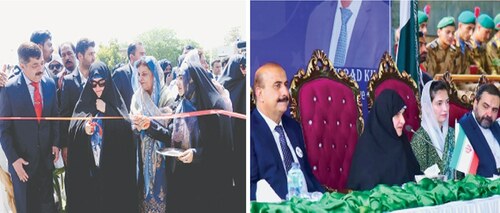ISLAMABAD: To create awareness of the importance of getting oneself tested for human immunodeficiency virus (HIV), heads of a number of international and local agencies have expressed their willingness to undergo voluntary HIV tests.
Those who have offered themselves for the test include World Health Organisation (WHO) Representative for Pakistan Dr Nima Saeed Abid, United Nations Pakistan Resident Coordinator Neil Bhune and National Aids Control Programme (NACP) Manager Dr Baseer Achakzai.
“Unfortunately there is lack of awareness about the disease and people attribute it to unsafe sexual relations.
HIV is just like any other disease and people with the virus can lead a normal life, Dr Nima Saeed Abid says
However the fact is that one can be infected through used syringes, drips and contaminated blood transfusion. Therefore we decided to get ourselves tested in order to send a message to everyone that they should get themselves checked for the virus,” Dr Achakzai said during an event held at the National Institute of Health on Tuesday.
He said if a person turned out to be HIV positive, he should start getting treatment. In the past, patients had to take a number of tablets but now only one tablet is required.
The NACP manager said it had been decided to engage organisations that were working with transgender people, drug users and sex workers to create awareness.
“Though people can get themselves tested for HIV from any health facility, there are 32 centres where there are proper arrangements for the treatment of patients,” Dr Achakzai said.
Dr Nima Saeed Abid said HIV was just like any other disease and people with the virus could lead a normal life.
“Moreover it has now become possible to get the test result within 15 minutes. The results are also kept confidential. In Pakistan, majority of the people don’t know whether they are suffering from HIV or not,” he said.
UNAIDS Country Director for Pakistan and Afghanistan Dr Marlyn Borromeo said Pakistan was among three most HIV vulnerable countries. The other two being the Philippines and Malaysia. The number of patients in these countries has increased by almost 50 to 100pc during the last decade, he added.
“When I started working on HIV 30 years ago, there was no medicine for the disease. But now drugs are available which have enabled patients to live a normal life,” she said.
Replying to a question, Dr Borromeo said HIV was super smart due to which all efforts to make a vaccine had failed. However, she said the WHO was working on it and hoped that a vaccine would be prepared within a decade.
Published in Dawn, November 28th, 2018














































Dear visitor, the comments section is undergoing an overhaul and will return soon.